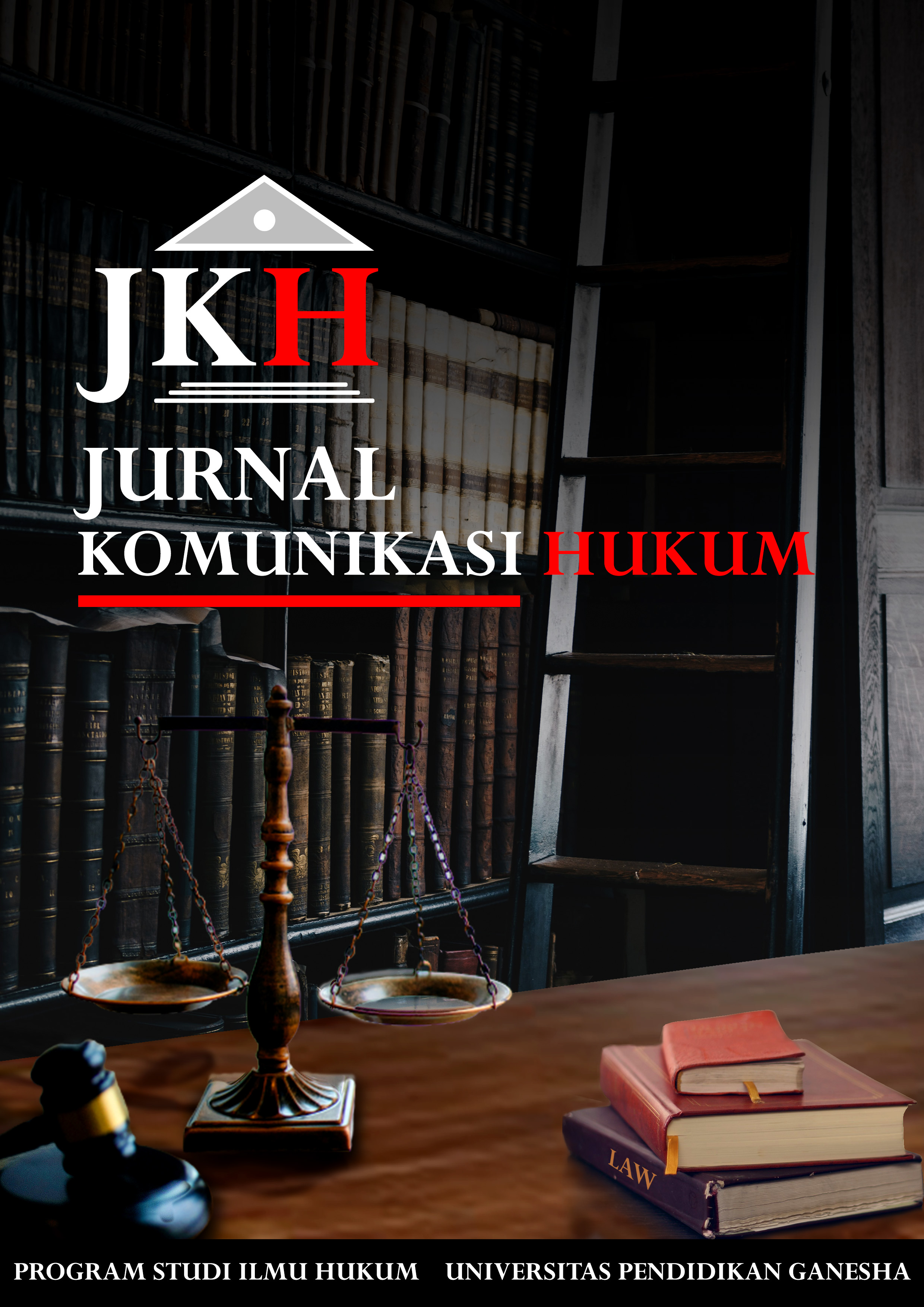TANTANGAN DAN KESEMPATAN PEMENUHAN HAK PENDIDIKAN DASAR DAN MENEGAH DI KAWASAN PERBATASAN NEGARA DI PROVINSI KALIMANTAN BARAT
DOI:
https://doi.org/10.23887/jkh.v8i1.47951Abstract
Increasing access to education cannot be separated from the spatial use and utilization plan of the border area itself. Oftentimes, the Regional Spatial Planning (RTRW) which is intended for the opening and construction of schools at the village and sub-district levels becomes an obstacle to the program because it must be reviewed and changed, or simply violated. In fact, almost all of the licensing processes for the establishment of primary and secondary schools for private primary and secondary schools established by non-state entities are very difficult to obtain due to the unclear use and utilization of regional space. The number of permits issued has begun to be targeted by the DPRD for the fulfillment of PAD, so that issues that do not match the existing spatial plan are not taken seriously. In the end, sustainability as a principle and good governance as a practice which are two twin aspects of good spatial planning only exist in the concept because they only serve as tools to legitimize public sector malpractice in the use of space and exploitation of resources, especially in border areas. Permits to use space for the establishment of primary and secondary schools by the private sector should be adjusted to the state's alignment with increasing access to education.
Downloads
Published
How to Cite
Issue
Section
License
Authors who publish with this journal agree to the following terms:- Authors retain copyright and grant the journal right of first publication with the work simultaneously licensed under a Creative Commons Attribution License that allows others to share the work with an acknowledgement of the work's authorship and initial publication in this journal.
- Authors are able to enter into separate, additional contractual arrangements for the non-exclusive distribution of the journal's published version of the work (e.g., post it to an institutional repository or publish it in a book), with an acknowledgement of its initial publication in this journal.
- Authors are permitted and encouraged to post their work online (e.g., in institutional repositories or on their website) prior to and during the submission process, as it can lead to productive exchanges, as well as earlier and greater citation of published work (See The Effect of Open Access).
Authors who publish with this journal agree to the following terms:
- Authors retain copyright and grant the journal right of first publication, with the work [SPECIFY PERIOD OF TIME] after publication simultaneously licensed under aCreative Commons Attribution License that allows others to share the work with an acknowledgement of the work's authorship and initial publication in this journal.
- Authors are able to enter into separate, additional contractual arrangements for the non-exclusive distribution of the journal's published version of the work (e.g., post it to an institutional repository or publish it in a book), with an acknowledgement of its initial publication in this journal.
- Authors are permitted and encouraged to post their work online (e.g., in institutional repositories or on their website) prior to and during the submission process, as it can lead to productive exchanges, as well as earlier and greater citation of published work (See The Effect of Open Access).












